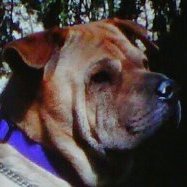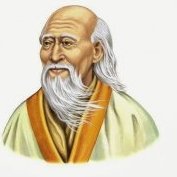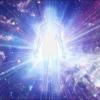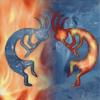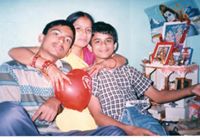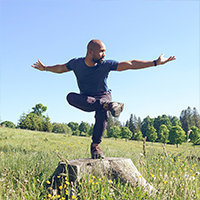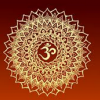Search the Community
Showing results for tags 'Taoism'.
Found 78 results
-
What is the relationship between the Yijing and Daoism, in general? This may seem like an odd question but one that I need some guidance on. Somewhere ... and I can't recall where but pretty sure in was in TDB ... I think I recall someone stating that the Yijing was really not a Daoist writing. This statement ... or my misinterpretation of some statement ... has been stuck in the back my head and been haunting my study. I have always considered the Yijing as part of the greater idea of daoism. Is there any basis for thinking it is not? What is the generally accepted sense of positioning the Yijing relative to Daoism? Any guidance, greatfully appreciated.
-
Hello everyone, Glad to join the forum! I've been practicing Taoist exercises and learning the philosophy for about a year and a half. I've learned a lot and made some mistakes along the way. So far I've kept my practice private, but recently I decided it's time to change this and reach out to the community. I have a few questions about The Dao Bums: What's a good way to get introduced to the forum? Is there a list of rules that I can read? (the ones I found tell me I don't have permission to access them). What is a good way to share the details of my Taoist journey so far? If I have specific questions (say about Kan Li meditation, or about the spiritual interactions of the organs) how should I go about asking them? Is there a place where people keep regular journals of their spiritual journey? It would be great to read about other people's on-going experience and post about my own. Thanks! asbc
-
Can anyone tell me more about this Guy. I tried searching here to see if this System is Discussed here. Would this be considered a genuine lineage ? I'm posting the website and another video : https://www.tinyatdragon.com/
- 28 replies
-
Ni hao, Dao Bum, my story is a simple one but one I have never attempted to form into words. I was always into the martial arts, this proved a soft entrance to the Eastern spiritual traditions and forms of internal cultivation. Through meditation, qigong, tai chi and study within Mandarin, I found myself constantly staring into the eyes of Confucianism, Taoism, and Buddhism. I picked up a book from Barnes & Nobles that was a five book volume of the Chinese classics, which had a book from each school of thought. Lao Tzu's "Tao Te Ching" (Dao De Jing), was the one that rang so clearly to me despite it's mysterious and often purposely confusing style of writing. It's a format that allowed me to find what I needed throughout various points in my life, the Tao Te Ching was a book of sage advice. However my thirst for more Taoist knowledge had only just begun. I began to read more and more, with each book, a new outlook on life and how to find my inner nature and become like the "uncarved block" (p'u). I delved deep into my studies; finding myself during the Spring and Autumn period history and writing's about Taoist philosophy and as far as modern Taoist sorcery, alchemy, divination, immortality, etc. They each provided an inkling into the mind of the Taoist throughout the many years. With peaceful hermit's like Lao Tzu, to radical extremist like the Yellow Turban Rebellion founder Jiang Jiao, Emperor's fearful of death that set out mass maritime expedition's in search of both an Island of Blest (where the "enlightened man or chen jen resided") and a mushroom of immorality. I've read the stories of the 8- Immortals and how they acted as saint like figures within Chinese History, I've read adaptations of the Taoist thought into modern life and living. Learned how the "Three Teachings" intermingled and their ideologies borrowed from one another. I am here strictly to exchange information and learn information about Taoism and the Three Teachings. Xie xie, zaijian, Lousy Lao Tzu
-
Taoist GrandMaster Wang Li Ping will be teaching a ten day intensive in China, starting on the afternoon of Dec. 21st and ending at noon on the 31st. Mr. Richard Liao will be translating. Please email [email protected] for complete details. www.dragongate-academy.org Our goal is to build a bridge between Master Wang Liping and everyone interested in Taoism. We wish to benefit all to communicate their experiences during their practice to learn the Taoist Golden Elixir system. We hope the heritage of Dragon Gate shall live on in the new era to enrich lives everywhere.
- 13 replies
-
- 7
-

-
- internal alchemy
- taoism
- (and 7 more)
-
Hi DB, I've just been listening to a Bulletproof Radio podcast with a guy called Dr Barry Morguelan. He claims to have trained in China and become one of only 12 master level practitioners in a 5000 year old energy root practise from the mountains. He does not give the name of this lineage or his master. I was wondering if anyone on this forum had any experience or knowledge about this guy. His website is www.energyforsuccess.org Thx J
-
Do we merge with Tao? Is it as though we were never born? Is the Jade emperor gonna fly over and escort us the the land of the immortals? Do we know?
-
hello everyone, I am from Tianjin University China. I like meditation very much. Taoism is Chinese traditional technique system for longetive aim. There were many people who practised Taoism got a more than hundred years old in the history. So Taoism is very useful for a healthy life. I practised Wushu , Taoism meditation for many years. I would like to meet more friends who have the same hobby. ----Mingtongzi Han
-

(Drugs & love) - heart burns and been poisoned by too much spirituality to save it
profounded posted a topic in General Discussion
Its the 4th of september and about 5 or 6 months ago I fell in love with a married woman with an extensive history of prostitution as well as an extensive substance abuse problem.. Well, I decided to take on (or fell into) the relationship with the idea that entering the world of polyamory would make this work. I had an idea of the problems that were going to arise but didn't truly grasp the agony of them until the relationship progressed. She is intelligent and beautiful as fuck. She is primitive in nature and in that primitivity is a beauty I have not found in the civilized world, and she is also polyamorous by nature whether she admits it to herself or not. Does she not love both myself and her husband? Is she not around men all the time (::gags in anxiety:: )? Maybe two days ago she resumed her adventures with crack, as well as drinking and smoking weed. It rips me apart because I don't see this stopping any time soon despite her telling me otherwise, and as a sober spiritual individual, I deal with the hurt in my heart seeing her destroy herself, which touches on my own insecurities as an individual which has to do with how I focused my last 8 years as a computer programmer because of the money instead of letting myself blossom as an individual, as well as the rational reality that she is going down a road that is full of suffering and possibly even death. Did she not jump out of a two story window not too long ago? Fuck.. So I got the jesus complex burned into my brain.. Taoism too has done its numbers on me and suffering for her in this agony for her health, to be one good influence in her life, seems to be in my path. Quotes like: "What is a good man but a bad man's teacher, and what is a bad man but a good man's job. Without knowing this, you will get lost." or "Greatest kind of love is where you give up your life for your friends" run through my head.. Wondering if there is a god or not runs through my head as well.. Why not leave selfishly for my own needs and leave this woman? Well that answer is simple: because I love the fuck out of her.. I'm addicted to the agony she puts me through and it truly is opening my mind to the harsh realities of life, as well as making polyamory a reality that cannot be ignored anymore... ahh.. I'm doing my best to give myself the space to process problems as they come, and I'm doing whatever I can to grow as an individual instead of chasing money, power, and prestige.. but I'm lost, and I guess this is a plea for encouragement.. I have nothing to grab onto anymore.. and no sense of certainty.. and this house cat is having a hard fucking time loving this street cat... what do i do? nonjudgmental, unconditional love seems all I can muster. I sometimes wonder if I am missing out by not experiencing drugs myself (I resort to a shit load of meditation which leaves me introverted and disconnected from others). I just read an article by OSHO talking about how drug users are using the drugs to deal with the society that conforms us to left brained systematic thinking instead of opening up the right hemisphere of creativity and such. I;m trying to do my best to see drugs in a positive light but truth is I avoid both drugs and alcohol because of the lack of sobriety that comes with them which I hold precedent in value.. I don't know.. I am also new to all these emotions and they are truly ripping me apart... If I had these emotions at age 20, hell I probably would have a drug problem myself.. but spirituality has grounded me at 30 and given me at least a good chance in dealing with this.. Just embrace and accept and love, right?- 21 replies
-
- taoism
- christianity
-
(and 3 more)
Tagged with:
-
Hi all, First off is there any way to delete a topic on the mobile version of this site? All I see are options to edit posts. So I have started my journey of meditation, but I was wondering if it should be coupled with some form of weight training, or cardio. In Chia's Awaken Healing Light of the Tao, he says exercise is important, but that you lose chi when you get out of breath. Should I just get into the sauna as exercise and do some Zhan Zhaung in there? I dont know if Im ready for Chi Gong or how I would practice it because I dont have wifi so I can't watch youtube really. Any good books that teach Chi Gong? Also I enjoy running on the beach by my house. Should I do that or would it mess up my energy to be out of breath? I used to go to the gym a lot, but I am a small guy so I have to eat a ton to gain any weight. I really don't think I need to be gaining weight, I just liked the effects of the gym (increased testosterone, increased vascularity). What are you guys' opinion on these topics. I know theres already a post about weightlifting which I have read. P.S. Does anyone find Mantak Chia's 6 healing sounds or Inner Smile meditations useful?
- 29 replies
-
- 1
-

-
- Mantak Chia
- Exercise
-
(and 6 more)
Tagged with:
-
Hi, I just joined the forum in order to get contact information of a member, I read one of snowmonki's posts, and noted he was in the UK, and wanted to find out more about him/her. I'm a long time Zen student who taught Tai Chi up till about fifteen years ago, when various circumstances - mainly physical - conspired against continuing it. I am now quite old. I am also interested in Chan, and also in Taoism. But my main study is Zen. I've been at this so long, that I see it as part of my identity I guess. Some three years ago my Kundalini awakened on a Chan retreat, and I've been dealing with the aftermath of that since then. It is a very difficult subject to get any useful help on, and I eventually started on Mahamudra studies in order to get access to experience from that path. The Tibetans are very broad in their views and very helpful.But I've just recently got my Vajrasattva initiation, and the Six Yogas of Naropa part of the study is still some years away, so I am still in limbo. I found that my Zen teacher doesn't value this direction, which is disappointing, particularly as this Zen school, like most of them, think the world of Hakuin, who in fact rated its usefulness highly. However, there does appear to be a prejudice in some spiritual traditions against the physical/emotional/energetic aspects of K. I can understand that K awakening may causes issues for students and in groups, but if it is unsought, then the path should be broad enough to include them, if it is a valid way. I think. The problems can lead to benefits too perhaps, though it might take time. I've recently been reading Nan Huai Chin, and it is disappointing that his particular branch of teaching doesn't appear to have made it to the UK. He says, that while this energetic/physical path is a left hand path, a side door, "a side door is still a door. One cannot ignore or deny this completely." I realize their are more modern approaches, like KAP, and teachers like Chrism. But somehow they are not for me. Traditional Yoga - as it is practiced in this country - doesn't interest me either. I wish I could find a teacher like Huai Chin.
-
In many different qigong meditations and sitting practice meditations, there are visualizations/movements to gather norht star or big dipper energy. What exactly is the energetic or psychic significance of polaris or big dipper? Does it give some unique chi that is better than the solar chi? Why not other stars or planets?
-
Some concerns and unanswered questions regarding learning Taoist Meditation with BK Frantzis The context of the following points is of my having practiced Taoist Meditation as taught by Bruce Frantzis for about fifteen years, with annual attendance at his meditation-related teachings and a practice schedule of one to two hours a day. Prior to that I had studied with senior EA instructors for nearly a decade, so I’m talking from a position of some experience, rather than hearsay or just having read some books. I have recently decided to take a break from the practices Bruce has taught me, and am re-evaluating my relationship to him as a teacher. Obviously I have got a lot from the practice of Taoist meditation or I wouldn’t have stuck with it for so long. However, the focus of this post is on the less positive aspects of my experience. · Bruce learned much of what he teaches studying one-on-one with his main Teacher Liu Hung Chieh for several hours a day over several years. He says in his books that personal feedback from a genuine master is essential for making progress and avoiding delusion. However, he doesn’t offer this kind of personal feedback. Instead, in my experience, he is not very approachable - in fact he can come across as very unfriendly. He will answer questions (in a manner that often comes across as reluctant and condescending), but in my experience he doesn’t always listen carefully or understand exactly what is being asked. The idea of having a relaxed, nuanced conversation with him about my practice seems impossible. This is in spite of the fact that in order to have the opportunity to talk to him I might have spent a lot of money and travelled a long way. · For some reason, there appears to be NO ONE else outside of China (excepting a few of his senior instructors) who teaches the method of Inner Dissolving from the tradition he claims to be part of. Perhaps when he started teaching, this was understandable what with the language barrier and general level of cultural exchange, but now, decades later, why are there no other representatives of the “Water Tradition” offering their teaching to westerners? · Whatever the reason for the last point, the situation is very unusual and prone to difficulties. After all, there is no realistic source of verification or alternative perspective or simply the opportunity to learn the same method from a teacher with a different personality. · Bruce is a student of Dzogchen master Wangdor Rimpoche, who has another student, Lama Lena, who offers much more support than Bruce. She told me that she only takes on as many students as she can maintain a personal connection with, and makes a point of always replying to emails written by students since she recognises how much effort and care has been put into writing them. Bruce has on a couple of occasions replied to messages from me on Facebook, for which I am grateful. However, one of these replies took over a year, and one message had no reply. · I understand that Bruce has many students and cannot be available to everyone. This seems fine for health practices, but when it comes to meditation, I find myself wondering if he is spreading himself too thin to make the path he teaches genuinely viable, in the absence of anyone else from his lineage available to offer guidance, feedback and support. · There sometimes seems to be a lack continuity or follow-up between mediation teachings. For example, one year in Oxford Bruce taught about how to dissolve the mind directly without going via the body, and another year he taught the use of sound to work with the first three energy bodies. Neither of these teaching had any follow-up as far as I know. There are also lots of audio and video resources available, which is great. However, without some guidance, it’s hard to know which of the many aspects and practices to work on at any given point. Bruce’s quote from Liu of “So, you’re a baby then, who needs to be told what to practice?” doesn’t quite sit right with me given the difference in learning contexts - ie intensive daily observation and input vs. annual workshops with many other students. · Maybe it’s a small deal, but why does Bruce feel the need to spend so much time talking about his achievements and just how amazing he is? For me it goes beyond instilling confidence in his credentials or the power of the practices and becomes somewhat grating. · The sense of always more - there is something about the way Bruce presents his teaching that I hear as implying that we as students are really complete beginners however long we might have been learning. Years ago a student of his who had left him said that it took meditation away from being a basic human activity everyone can do to something very elitist that you need special transmission in order to do properly. This a perspective shared by some Buddhist schools as well. It might well be the case, but there might also be an element of “the Emperor’s New Clothes” going on. It’s hard to say, and is a point of discernment. · Finally, in my recent research into alternative spiritual paths and teachers, I came across an article about Zen meditation in which the author wrote that to consider that someone is your teacher, you must see them in person a least once a year and they must KNOW YOUR NAME! Perhaps the crux of my whole experience here is that I predict a low probability that Bruce could remember my name unprompted, in spite of the time, effort and money I have put into learning from him. Of course one could argue that he has given me a great gift by sharing the teachings, and is in no way beholden to me, but regardless, there’s something about the totality as my experience which “doesn’t feel quite right.” The reason I’m going into so much detail and thinking and writing about all this is that it is actually a very big deal to move on from a mediation teacher and practice that has been a huge part of my life over such a long time. I think ideally I would not make this change, but with things as they are and not knowing how to address them, it feels more true to myself to cut myself adrift and see what else comes my way re spiritual guidance. It’s hard to measure the benefits I’ve received through my loyalty to this path, although I expect they are immense. I’d like to feel more at peace and have some resolution with Bruce around my experience, but maybe for now I need to allow myself to feel a bit angry and disillusioned in order to help me make the transition to the next stage of my journey. ***** I'm curious to read any constructive comments and/or feedback from what I've written. Has anyone here had similar experiences either with Bruce or any other teacher? I'm off to a weekend retreat on Mindfulness today. Should be interesting....
- 16 replies
-
- 8
-

-
- BK Frantzis
- Taoism
-
(and 2 more)
Tagged with:
-
Hello, everybody!!! I am an 30 yrs old Engineer, practicing meditation for last few years. But right now, I am going through, what appears to be healing crisis. I learnt meditation on my own and I do not have any masters. So, through this forum, which I am a member through facebook, I would like to come in contact with like minded people and learn new things. My problem right now is blockage at sacral chakra which seems to be too hard for me to crack. So, if anybody could suggest me techniques to open the blockage would be very helpful. Thanks and regards, Sunshine
-
Q: Thank you so much, how can I connect to space, I mean how can I imagine the space and connect to it. A: Hello. The first thing you must do, is understand that the process of imagination is a function of the mind and the thoughts it produces. The space between the thoughts, is the still point in the midst of the movement of the mind. It is like the subtle pause after the inbreath and the outbreath of air from our lungs. It is the point of no-thing, whence wu wei is birthed. If you can remain at rest within this sea of relative emptiness and empty your heart of desires; the body of the Tao will embrace you in it's transformative energy and you will begin to awaken to your original essence and see your true face, as it is before you are born into the physical dimension of duality: Taiji. The second thing to understand is that the thoughts on their own cannot be rid off. They are evidence of a live and conscious being, and you should be happy you have them. When your body dies, the thoughts will die with the brain. I will give you an easy method that you can practice at your leisure. 1. Sit comfortably on a chair or on the floor, and make sure your back is naturally erect. 2. Take a few minutes to relax your body completely. Relaxation is one of the most important things, not just during meditation, but during every activity we perform in life. When the mind and the body are relaxed, the spirit is still. When the spirit is still, it can manifest the Tao perfectly. 3. Place your attention on a single point. This is your anchor. You can pick your Xia Dantien or the tip of your nose. 4. Maintain your attention on the anchor point, but do not apply any intention. There is a difference between the two. Although both intention and attention can lead the mind. The former is pregnant with desire, while the latter is empty of it. We want to disengage the heart, because when the heart stirs it produces thoughts and emotions. So, to be effective we apply an open attention instead of a closed intention. 5. Keep your attention on the anchor point. Nothing should sway you from it. Not even the breath. If you notice you are voluntarily adjusting your breathing; remove the attention even from this activity and replace it back on the anchor point. The breath will regulate itself. When at rest, it is an involuntary mechanism and it does not need conscious direction from the mind. The thoughts need Qi to function, so the breath is connected to the thoughts, and our awareness provides the fuel. Because of this, the breath can be used as a yardstick in measuring the efficacy of producing tranquillity. If the breath is slow, the thoughts are weak and the awareness is disengaged from their activity. If the breath is fast and laboured, the thoughts will be heavy and over-active and our awareness will be dedicated to supporting their proliferation. If the breath becomes so slow, and for long periods of time seems to stop completely. Then you are beginning to touch upon the state required to support spiritual transformation in deep mediation. Your awareness will be completely disengaged from the Taiji dimension and it's full potential will be redirected towards the transportation of consciousness into the absolute emptiness of Wuji. 6. If you notice that your awareness has been hijacked by a torrent of thoughts or one idea that has spiralled into a full blown Hollywood blockbuster. Do not get aggravated or irritated. Just gently redirect your attention to your anchor point. 7. Repeat steps 4 to 6. At first you will notice that you're only able to maintain focus for short spans of time, maybe even seconds at the beginning. With daily practice, this will grow into minutes and hours, until eventually your awareness will condition itself to continuously stay in this relative emptiness within your mind, whether you're working or talking or lying down. This relative emptiness is a pathway to the absolute emptiness of the Wuji. It is like a thread which will lead you into the ultimate fire of spiritual transformation. In time, you will find that rather than needing to engage the "thinking" mind to express yourself in the world; your expression will come from a higher faculty; a source beyond the impermanence of the physical mind, and you will finally begin to express your soul directly. Action, thought, mind, emotion, awareness, everything will blend into one, and you will move as a whole being in every facet of your life. One divine entity, expressing itself directly as a manifestation of the perfected nature of the Tao. Best wishes. Xuan Daoji
-
- 8
-

-
- taoism
- meditation
-
(and 1 more)
Tagged with:
-
Dear Forum Members, About me My name is Alexey Alexeevich Khokhlov (A.A.Khokhlov), I am a Chief Instructor of Taoist Center "Dao De". I've been practising Taoist Alchemy methods for more than 10 years, learning the traditional teachings of WuLiupai and Yuxianpai Schools. I've been to China many times and had a good fate to study from outstanding Masters, and the most important among them were: Teacher of Single-United Yang, Patriarch of WuLiupai School (transmission in 9th generation), a descendant of Great Teacher Wu Chongxu Zhu Mingxian, Patriarch of Yuxianpai School (transmission in 20th generation) I'm permitted to teach, in person and online, highly effective Neigong (Qigong) and Taoist Alchemy methods of Yuxianpai and Wuliupai Schools. About the Taoist Center "Dao De" Taoist Center "Dao De" was founded in Saint-Petersburg, Russia in 1993 by Dmitry Aleksandrovich Artemyev (D.A.Artemyev), a disciple of Teacher of Single-United Yang and official representative of Wuliupai School in Russia and on the West. The Center was created to build a bridge from true Eastern (Chinese) masters, knowledge and culture to the Western world. 3D view of "Dao De" Center in Saint Petersburg (press left mouse button to turn the view; double-click to go full screen). In our Center we study and teach Taoism and Taoist Alchemy, internal martial arts - Taijiquan, Xinyiquan, Baguazhang, Yiquan, Chinese medicine, Chinese nutrition and many other subjects. Originally we were teaching only Russians, but later students from other countries started requesting trainings in English, so this year we've begun special online classes and seminars for foreigners. If you would like to join us please don't hesitate to contact me. Communication Here I would like to share the experience and knowledge I've obtained by studying Taoism for more than 10 years, answer your questions and introduce the opportunities our Center gives to you. I am willing to answer your questions on Taoism, Taoist Alchemy and Chinese martial arts. Best Regards, A.A.Khokhlov
- 2 replies
-
- 5
-

-
- A.A.Khokhlov
- WuLiupai
- (and 5 more)
-
I have felt that the two were more similar than different, but lately I am seeing very great differences. I think that the goal of the two religions in meditation is the same. The Taoists in the Secret of the Golden Flower, say that the ego can remain after the body dies. I think, although I am not sure, that Taoism like Buddhism believes in ending the cycle of rebirths. This would have to be implicit in the Golden Flower otherwise the ego, as the Taoists call it, would simply be reincarnated, which I do not believe is implied in the SGF. But I am feeling that the darma or dhamma of Buddhism is a stricter and more explicitly laid out program. I do not read in Buddhism of the channels, e.g., the Governor, Imperial, or Central channels that have such prominence in Taoism. The Buddhists speak of anatta, non-self, when they describe the sensifacient phenomena of the body. In other words, these are merely material phenomena and not indicative of a "self." But one unanswered question I have is that the pattern and combinations of these material sense events are unique to one person. Therefore when we say Mr. X is prone to headaches while Ms, Y is not, the aggregate of sense events one person has would seem to define a "self". I have not cracked the idea of non-self, either that the world has no self or that the body has no self. This seems like a contradiction of the Taoists and maybe the Tibetan Buddhists both of whom hold that there is some sort of consciousness or "ego" that separates from the physical body and that can be reincarnated or not. Theravada ideas on non-self may contradict Tibetan ones. But if there were no self, soul, ego or conscious entity of some sort, then it would be impossible to escape the cycle of rebirth because there would be nothing that was escaping it. Whether I should regard myself as a self or not is a mystery to me. Any clarification would be appreciated.
-
I recently picked up the book, "Self Liberation Through Seeing with Naked Awareness" translated by John M. Reynolds. I have always loved the title and the translation. One thing he notes in his commentary is the power of titles. According to John Reynolds, a good student can pick up the nature of the work just from the title. Long after I have read a book, listened to a live teaching, or followed a practice, I typically only remember a phrase to sum it up. In some cases, even the title of a book I've never read sticks with me (the last two below), and comes drifting up from time to time. Some of my favorite titles are: Self Liberation Through Seeing with Naked Awareness (trans. John M. Reynolds) Be as You Are (The Teachings of Ramana Maharshi translated and edited by David Godman) The Wisdom of No Escape (by Pema Chodron) The Real is Unknowable, the Knowable is Unreal (by Robert Powell) What are some teaching titles that stick with you?
-
Hi all, Those that have read my posts before may be aware that I began meditating due to chronic anxiety and insomnia. Although overall my condition has improved, I notice it comes back in waves. I am going through a change right now with promising yet risky career prospects on the horizon. With this, and Christmas coming up (my parents and siblings are totally disbanded which is sad and difficult for me as I'm therefore responsible for keeping three different branches happy) I know this will be causing it. The interesting thing is, when I shut my eyes at night, I am not conscious of what is causing my anxiety and insomnia. I can be relaxed, and mindful of my breathing, yet my mind is screaming all sorts of things and being very disruptive. Like I say, all sorts of things...nothing particularly related to something I am consciously worried about. That is the background anyway. I don't expect any answers but the context might help people understand where I'm coming from with the next part...my question: ------ So anyway, I am practicing breathing into the Dan Tien. I find that anything else is too advanced for me and I need to return to basic breathing practice. I have noticed that I am doing this successfully, and can gain peace from my motor-mind. However, I also notice accelerating heart-rate. Again, no idea what is causing it, something completely subconscious. But I will sit, and feel good about being sat in meditation, but slightly weirded out by my heart panicking by itself. Is anybody able to give me an insight into what is going on? Thanks in advance.
- 42 replies
-
- 1
-

-
- taoism
- meditation
-
(and 8 more)
Tagged with:
-
Wanted to do something fun. So this thead is for a Taoism Giveaway. I'll let this run until 12 pm PST (2400 hrs) Sept. 5. I'm going to have Amazon ship a brand new copy of the following book to whomever wins. I'll even have it shipped internationally should someone outside the U.S. be the winner. The only exception being if that person lives somewhere that Amazon doesn't deliver. Embryonic Breathing by Yang Jwing-Ming So here it is: Think of a number between 0 and 200. The person closest to the number I'm thinking of will win the book. Post your guess. The winner can PM me once it's over for his/her shipping address. edit: revised date
-

Collection of favorite Taoist sayings, fables, stories, etc
ViscountValmont posted a topic in Daoist Discussion
I would just like to start an archive of everyone's favorite sayings and so forth, as well as accompanying discussions and interpretations of them, how the lessons are applied to life, and why they're particularly your favorites. I apologize if there is already such a thread, and this may be merged with it, if so. One of my favorites is this story by Lieh Tzu- On the way to Song, Yang meets a man at the town of Ni. The man has two wives, one is very attractive and the other one is quite plain. But the man favors the not so attractive one. So Yang asks him why. The man answers:"The pretty one knows she is pretty. I don't. The plain one knows she is plain. I don't. A bad person knows he is bad. I don't." Yang says:"I will remember what you just said. The Saint behaves as a Saint, by his own volition." How does everyone see this? I also very much like the painting, The Vinegar Tasters. It perfectly shows how Tao's approach is starkly different to the other school's of thought. -
Hello, An initiation in London is coming up for Xiao Yao Pai and I am thinking about attending. It sounds interesting. I just wanted to ask anyone who has been initiated and done the practices what there experiences have been with Xiao Yao Pai. So, what are your experiences? Both 'normal' (improved mood, health, etc), and mystical (seeing auras, communicating with deities when you didn't before, increased intensity of energy in practices, healing abilities, OOBE, etc), and, whatever else (like improvement in practices)? If you can (concisely) describe the practices involved that would be appreciated too. Would the practices involved be called Neidan? Neigong? Qigong? Any (concise) relevant information would be appreciated). I'm still quite new to Chinese and Taoist terminology.
-
Hi, i practice kung fu. And i am searching, for a more internal discipline to compliment. Im currently looking between Taoist Chi kung, Buddhist Chi kung or yoga. I know some differences between taoist, and buddhist breathing. Taoist contracts abdomen on inhale and expands on exhale. Buddhist expands abdomen on inhale, and contracts on exhale. But i dont know how this affect Chi circulation, ying/yang principles. Microcosmic/Macrocosmic orbit circulation. I feel taoist breathing more yang than ying because it energizes me more than relaxes me (which i feel on buddhist breathing). I mention yoga, because prior to feeling the circulations, im all over muscular tension, and i feel that before i need to work this energy blockages, this shield that is created by emotional tensions. Example: shoulder, hip openers. What i dont like about yoga, is that i dont perceive (maybe is just my ignorance), a fundamental principle that is comprehensive from a rational point of view, i feel it more god based, religious. Is there some analogy between chi circulation orbits, and prana circulation? Other possibility is doing zazen/kinhin, but i feel that im not ready mentally. Chi kung works proggresively. body, mind, spiritual centers. For Example Lohan Chi Kung: Sap Bak Lohan (energy circulation, body). Siu Lohan (mind circulation, energy from body to mind) Dai Lohan (mind to spirit, meditation) I feel yoga works more on body, and spiritual centers. and zen on mind, spiritual centers. I feel zen is not the answer yet, because i have a troublesome personality/physical-emotions manifestations to resolv first. Japanese are more propense to zen, because they have born/rised/act, in the zen way of life, or this prior western cultural invasion. I find zen, simple as perfection, but i dont feel im ready. Is there a chi kung, that centers on body tension blockages like yoga?
-
Perennial Philosophy/Perennial Technique: Spiritual Thesaurus (copied from a different thread I started, as it seemed worthy of it's own) My vocabulary of terms and practices is pretty much solely western or Indian/Sankrit/Yoga/Tantra, etc. Along those lines, does anyone know of any book, pdf or website (preferably an all in one source) that serves as a sort of spiritual thesaurus between the different traditions/geographical locations? Or a spreadsheet/chart? I believe/know there is a perennial philosophy (Truth is Truth, right?) and like to think that there's a perennial practice as well (hence the similarities between Self Inquiry/Philosophy systems [Jnana, Zen, Buddhism, Advaita, Gnosis, Sufism] and energy work systems [Yoga, Tantra, Neidan, Taoist, Tibetan, Christian Kabbalah, Kabbalah, Dhikr etc; humans are all built the same, right?]). If no such document exists then perhaps this would be an interesting project to take up on here/and through other forums. Part of me that likes to think of universal theory/practice is a bit apprehensive about starting on a new route and coming across potential clashes/dissonances throughout traditions, but I guess this is just ego attachment/fear.
- 21 replies
-
- 2
-

-
- Perennial Philosophy
- Sadhana
-
(and 8 more)
Tagged with:
-

How does one 'choose' a religion, spiritual path, etc?
qvrmy11vz posted a topic in General Discussion
While talking to a Bhakti-yoga practitioner today, I couldn't help but notice the many similarities between the way these practitioners (Hare Krishna folk) live their life compared to Buddhist and Taoist teachings. Basically, and unsurprisingly, religion and/or spirituality share many common principles. But how does one hone in on one school of thought? For example, if I choose to become a Bhakti practitioner, I feel like I would be missing out on a whole other world, namely, Buddhism and Taoism. Anybody here 'migrated' from one religion or spiritual path to another or encountered this question along their own path? Thank you for your time to read this

